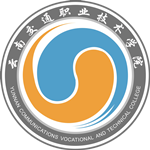School Badge

About Yunnan Communications Vocational and Technical College
Yunnan Communications Vocational and Technical College was founded in 1952, then known as “Yunnan Transportation School”. In April 2001, it was formed by the merger of the former Yunnan Highway Bureau Staff University, Yunnan Transportation School and Yunnan Transportation Staff Secondary Specialized School. The existing campuses of the college are Chenggong, Phuket and Wujingqiao, covering an area of 678 mu; the Longcheng campus, which is integrated with Yunnan Chemical Engineering School, covers an area of 67 mu; the high-tech campus, which is co-operated with enterprises, covers an area of 277 mu; and another 495 mu of student practice and training base is rented. The main campus is Chenggong Campus, located in Chenggong University Town, Kunming.The college consists of 12 secondary colleges, including College of Highway and Architecture Engineering, College of Automotive and Electromechanical Engineering, College of Transportation Engineering, College of Transportation Information Engineering, College of Economics and Management, College of Humanities and Arts, Yunnan Tongji Sino-German College, etc. Set up five industrial colleges with Iflytek, ZTE, Guanghui Jintong, Shili Group, Nuoshida Group and other well-known enterprises. There are seven economic entities such as National Vocational Skills Appraisal Institute, Yunnan Transportation Survey and Design Institute, Yunnan Transportation and Civil Engineering Testing and Research Center, and various vocational training qualification institutions such as Yunnan Transportation Staff Training Center, which is the “1+32” platform of the Ministry of Communications, forming a school-running pattern with close combination of academic education, vocational training, skill appraisal and technology research and development.
At present, there are 681 faculty members, 591 full-time teachers, 244 teachers with senior professional titles, 323 teachers with master’s degree or above, and 208 double-qualified teachers. There are 5 provincial-level excellent teaching teams, 6 provincial-level teaching master studios and 1 skill master studio in Yunnan Province. There are 3 famous teaching teachers in transportation vocational education, 1 “Yunling Scholar” in Yunnan Province, 4 “Teaching Masters” in Yunnan Province, 6 provincial-level teaching masters, 1 design master in Yunnan Province and 1 hundred outstanding engineers in China Highway. Wu Fu-Zhenhua Fund (scholarship) of the Ministry of Communications has 2 winners and 1 outstanding contribution award from the provincial government; At present, there is one expert who enjoys the allowance of the State Council and four experts who enjoy the special allowance of the Yunnan provincial government. There are 2 professional leaders of transportation vocational education in China, and 1 expert in the expert database of higher vocational colleges of the Ministry of Education and the Ministry of Communications.
The college has 25,154 full-time students, with more than 60% of the majors and students directly serving the transportation industry. The employment rate of graduates has remained above 97% for many years in a row, the employment ratio of counterpart transportation industry has exceeded 60%, and the satisfaction degree of graduates has continued to rise.
There are 79 majors in the college, including 8 key majors recognized by the Ministry of Education, 3 productive training bases, 2 collaborative innovation centers and 1 double-qualification training base. There are 9 provincial-level backbone majors and 4 transportation demonstration majors determined by the Ministry of Communications and other five ministries. Two-thirds of the majors and students in the college are related to transportation, and the nature and characteristics of serving transportation are outstanding and distinct, forming a major layout of “big transportation” with highway, automobile and rail transportation as the mainstay and air transportation as the supplement, and the professional coverage of school-enterprise cooperation reaches 100%. There are three majors supported by the state finance, one supported by the Ministry of Communications and two supported by the provincial finance. By building a platform, building a system, strengthening discipline and grasping implementation, the college has vigorously strengthened the construction of professional leaders and teaching teams, closely followed the development of the industry and economy and society, and built a large platform for educating people with the combination of Industry-University-Research, thus taking the road of school-enterprise cooperation of cooperative education, cooperative education, cooperative employment and cooperative development. Won 1 second prize of national teaching achievement, 2 provincial science and technology progress prizes, 3 first prizes and 5 second prizes of provincial teaching achievement, 2 national excellent courses, 1 national excellent resource sharing course and 23 excellent courses in Yunnan Province.
The college actively serves the construction of “the belt and road initiative” and “transportation power”, makes full use of regional and self advantages, and actively carries out international cooperation and exchanges. At present, the college has signed cooperation agreements with 8 universities in 7 countries; There were 1,952 international students and exchange students from 29 countries to study in the school. In Thailand, two overseas schools have been set up, namely “China Yunnan Vocational and Technical College of Communications, Thailand Bangpakong Branch” and “China Yunnan Vocational and Technical College of Communications, Thailand Bansai Branch”. It has gradually formed its own characteristics and influence in talent training for neighboring countries.
After the establishment of the school, in 2009, the college was rated as a national model higher vocational college, and in 2019, it was rated as a national quality college higher vocational college. Since 2016, it has won the “Top 50 Service Contributions” of national higher vocational colleges three times and the “Top 50 International Influence of National Higher Vocational Colleges” twice; Won the 6th National Huang Yanpei Vocational Education Award (Excellent School Award) and “Top 50 Influential Vocational Colleges in Asia-Pacific”, and became an institution of “China-ASEAN Characteristic Cooperation Project for Higher Vocational Colleges”; It has been rated as a model school of socialist core values education in Yunnan Province, a model center of mental health education and consultation in Yunnan Province, a model university of deepening innovation and entrepreneurship education reform in Yunnan Province, a typical experience university of innovation and entrepreneurship in Yunnan Province, and a comprehensive reform pilot school of “all-round education” in Yunnan Province. College is the president unit of the alliance of ideological and political theory course construction in higher vocational colleges in Yunnan Province, and has been awarded the first prize of employment and entrepreneurship assessment for college graduates in Yunnan Province for 15 years. In 2020, it was rated as “Model Vocational Education Group” and “Training and Cultivation Base for Principals of Vocational Colleges” by the Ministry of Education.
In the new period, Yunnan Communications Vocational and Technical College will always insist on taking Lide Shuren as the fundamental task of school education, taking the second party congress as an opportunity, based on the school-running characteristics of the integration of production and education in vocational education, adhering to the motto of “harmony and accessibility, harmonious coexistence”, focusing on the school management strategy of “innovative school building, employment inspection, quality school building, school management and strength”, and firmly establishing “staying in school for three years will affect one’s life” Clarify the development idea of “winning with characteristics, striving for strength with quality, and exerting strength with external force”, adhere to the employment orientation, serving as the purpose, taking the construction of specialty groups as the leading factor, taking the construction of teaching staff as the foundation, taking the integration of production and education as the main line, comprehensively deepen the reform, coordinate the innovation and development, accurately and accurately build “one system”, implement “nine projects”, and comprehensively build high-level higher vocational colleges with Chinese characteristics.







